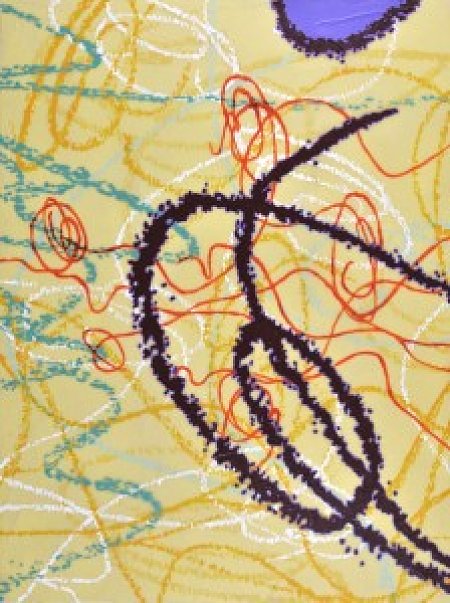
Numbers
I was thinking that I cannot do much, and my friend Nina thought that despite her skills with laundering and with cleaning and all kind of domestic work, she wouldn’t be useful. She repeated, “I think it’s the end; I don’t think they need any maids here, in the middle of nowhere. They are fighting the war and they need people to build tanks; I can’t build tanks, I only can wash clothes and mend them, so I think we’ll be exterminated, sooner or later.”
I didn’t know what to make of this and hesitated to attribute such words to her usual pessimism; I was not looking ahead very much toward any possible job the Germans could offer me, but I was hoping to get a place in an office so that I could work on papers. I have good handwriting, and I know some bookkeeping, and I was hoping that while doing this bookkeeping for the Germans, I would have time for writing. I almost felt today that I was on the verge of a new story… I’m almost there despite my desperation yesterday…
The next day they woke us up early, and I was happy to get out of the barracks because I hadn’t slept the whole night. There were at least five of us on the wooden bed, and they were only faces for me, again nothing individual, nothing with which to create a story. Besides, they were pushing me, trying to get a bigger place on the bench so that I even fell once and now have a bruise on my back and on my elbow. There are rumors that they are going to tattoo numbers on our arms, and I thought that modern life is such that what was a number for Olga, the number of a page in a children’s book, will now become a number on the arm, a number not inspired by fantasy, but a number to keep people in check, to keep them as a mass without a face.
And here is where the idea for a new story struck me: when they told us all to undress and to go take a shower. They told us the following: “You are all unkempt from riding in a train for so long, so we are going to wash you. We built showers for you there in that ravine; you are going to be very clean. We are going to take care not only of your body; we are going to take care also of your clothes.”
“Oh my,” said one Italian woman who was helping a German officer. “You look like an intelligent girl but your clothes look so bad,” and she looked at me with such grief that her face reminded me of my mother’s face in the picture… She looked at me as though she knew that she was causing me pain, but still she kept causing it… I couldn’t understand why this woman was looking at me with such sadness… We were only going to take a shower in a ravine…
A German officer said, “Tell them to hang their clothes on these hooks with numbers, and make them write these numbers on their hands so they remember… This way, everybody will come back to their clothes and their clothes won’t be lost…”
And then my friend Nina said, “Well, I thought that they were going to kill us here, but if they make us write down the numbers on our palms, it means they really won’t do it! Otherwise, if they wanted to kill us, why would they ask us to memorize these numbers or to write them on our hands?”
And I agreed with her. Surely, we’ll be safe. I had the idea for the story right at the moment they told us to memorize these numbers on the hooks for our clothes. Nina’s number was 8897, and mine was 8816, the one close to her. Nina asked me for a pencil and I gave it to her, and she licked it and from grey it became blue, because it was a special pencil that had ink in it if licked, and she couldn’t write this number on her hand because her hands were so calloused and so cold, and she asked me to write this number on her hand.
And then I wrote a number on my hand, the number of the hook on which I was supposed to find my clothes when I came back from the shower, clean and ready to complete my story, and now I knew exactly what my story would be. My story would be about numbers, about Olga’s pages in a children’s book, and these numbers on the hook, the number of hope that gives meaning and logic to human existence, the number that allows them to survive because they can return to their clothes after showering. I realized that my story will be about these numbers and about hope, and that there was even some kind of memorable detail worthy of literature: showers in the ravine, showers we didn’t see yet but that we envisioned in our hopes to be clean and to return from there, from that strange looking ravine where clean water was waiting for us. And I realized that these hooks on wooden planks with numbers were something really strange, something totally different, something that I could link to the story of Olga and her numbers on the pages of her favorite children’s books, and now, at this moment, I realize that I will live and that I’ll survive these hard times, because my talent has been unleashed and because I have in mind the whole story and am ready to complete it once I come back.
